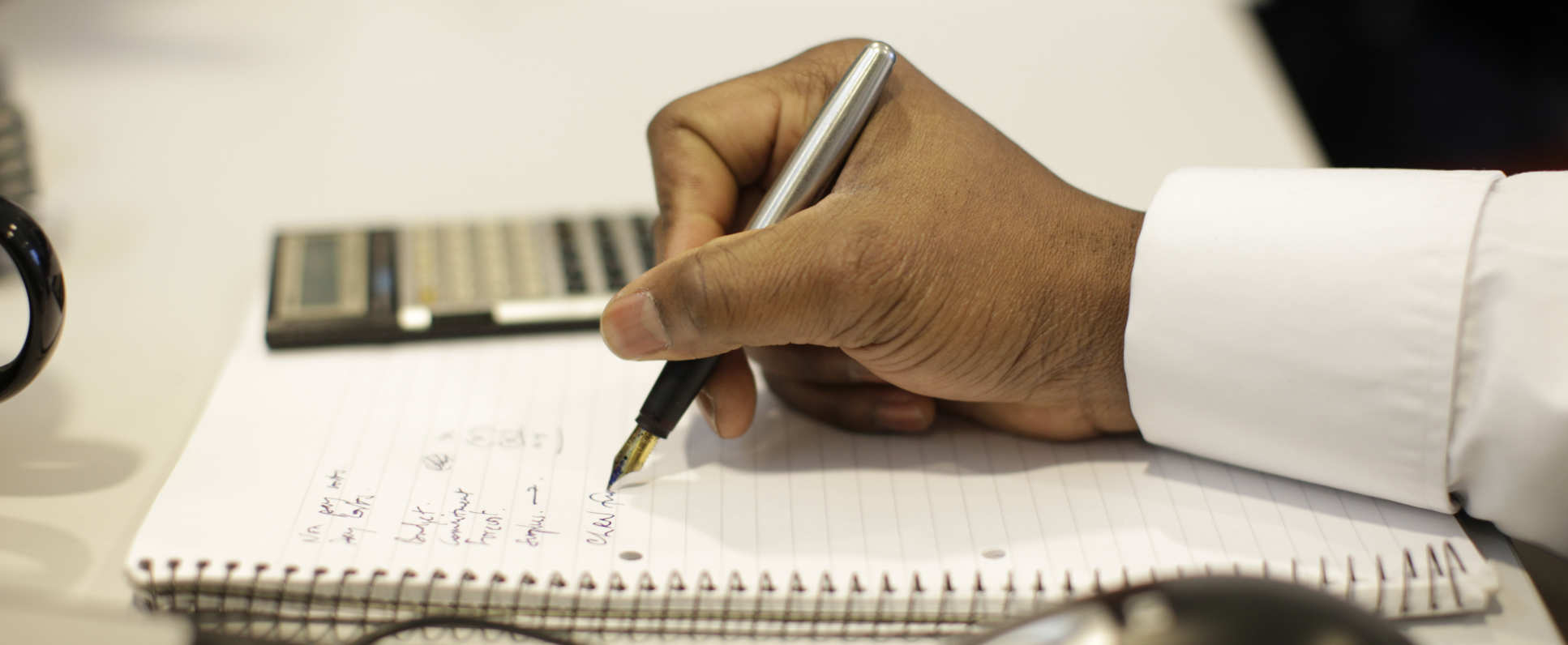
Good note-taking is essential for managing the information you read and listen to during lectures. There are a number of different note-taking techniques, and you may find it’s effective to use different techniques depending on the information you need to record.
Information blocks
Find a method that suits you
You might find several different methods being used amongst your friends – some people will hardly make any notes, some will make lots - the important thing is to find a method that suits you.
And that could take practice – it’s very likely your first year notes will look very different from your fourth year notes.
Why are you making notes?
To make effective notes, it’s worth thinking about why you need to make them. Most people would say you make notes to remember things. That’s true, but there are many other reasons: it might be to help you understand better, to record your original thoughts and ideas, to help organise and control information.
Research shows that students who attend lectures and actively take notes perform better in assessments that students who don't.
Note-taking advice
Making notes during lectures
- Focus on what is being said rather than your writing. Don’t try to write too much or you won’t have time to properly listen and understand what is being said;
- To ensure you capture the main points, consider using abbreviations or your own “code” so long as you will be able to understand it after;
- See if the presentation is available to download on Blackboard or your department's VLE before the lecture - then you can make notes to supplement the main points on the handout;
- Highlight any things you don’t understand and clarify them soon after the lecture by reading, asking peers and/or the lecturer;
- Leave space to supplement your notes with your independent reading;
- Notes taken during the lecture should be a first draft. Review and consolidate the material afterwards in your own time;
- Find out more about what to expect in your first lectures.
Making notes on other sources
For different theories or methodologies: Use a table to record information – it’s much easier to look at the information quickly and do a quick comparison.
For procedures and processes: Use a flow chart to record the different stages, and the decision-making process that you will need to work through.
For summarising different documents or sources: Make a list of the key points and use prose or linear notes to add any of your own commentary. You could then record how these points link up using a ‘mind map’ or a diagram.
For recording how a piece of equipment works: Use an image or diagram to record details of each part. It doesn’t matter if you can’t draw well, as long as you understand it.
"You should try and write up your notes as soon as possible after your lectures and seminars. It will reinforce the knowledge you've learnt, and a little bit of work each day will save you time come revision."
– Lloyd James, ICU President 2021-22
"Make sure you're taking good notes because they’re invaluable at revision times. You can use colour or other visual aids to enhance notes - especially if you’re a person that finds it hard to learn from these. Shorter note cards can be really effective for some people; but try to produce these early as they take a long time to make during a revision period"
– Daniel Lo, ICU Deputy President (Education) 2021-22
More note-taking tips
 You do not need to write everything down
You do not need to write everything down
If you read a 20 page book chapter, and make 20 pages of notes, you won’t be able to effectively review any of that information. Only record the most important information, and any additional thoughts or questions you have.
Always write down the original source of information
One of the most frequent types of plagiarism is when people write about an idea or concept from their notes but can’t remember where it came from and so do not include an acknowledgement. Whether the information came from a lecture, a website or a textbook, make sure that you write down the source.
Good academic practice, and successful research, is based on demonstrating your knowledge of a subject, and that is based on the information you read and evaluate. Your notes are part of this process, so accurate record-keeping is essential.
Advice for managing your notes
- Write the date and the name of the lecture on your notes.
- Write bibliographic details on your notes, and include the page number(s) of any quotes you copy from books or journals. This applies to websites and images too. Find out more about referencing.
- Write legible notes; give yourself space to add comments later; underline, circle or highlight the most important points.
- Use abbreviations (so long as you understand them) – this can help in lectures to give you more time to think whilst you write.
- If you are directly quoting a person or source, write quotations in a different colour or highlight them so you can distinguish them from your own thoughts and ideas.
- Use your own words to write about what you read – this is good paraphrasing practice, and will help you to explain difficult ideas more easily.
Further resources
You will find many guides to note-taking online, or in books in the Library. Have a look for study skills using Library Search.
Next Page
Using lecture recordings